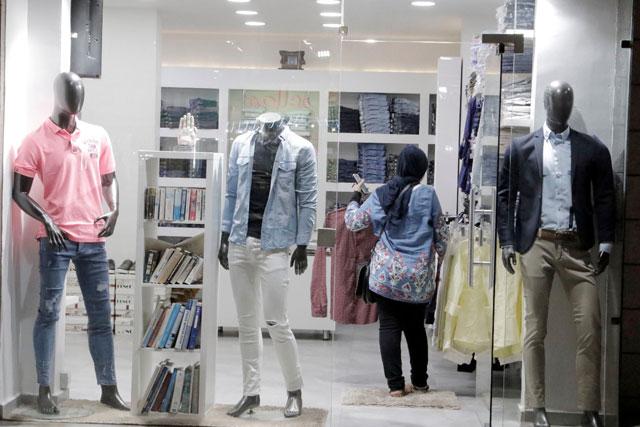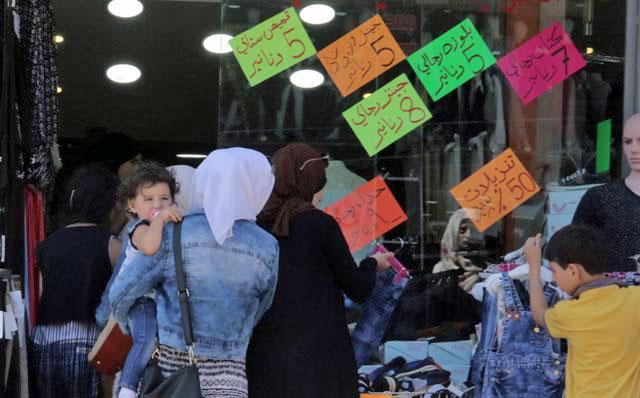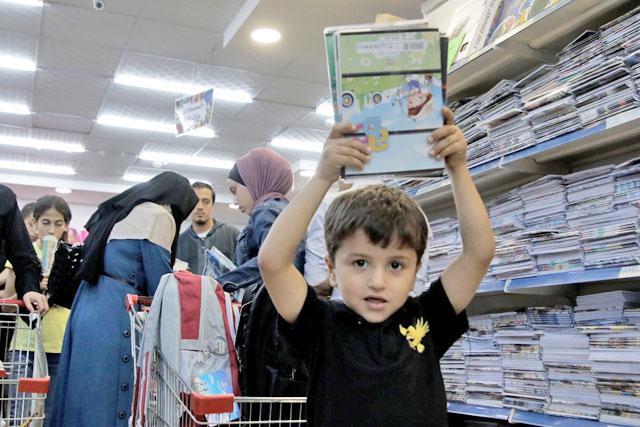You are here
People barely buy clothes in our shops anymore, garment traders say
By Renad Aljadid - Jun 10,2018 - Last updated at Jun 10,2018

Garment sector laments 50 per cent drop in sales since beginning of Ramadan (Photo by Osama Aqarbeh)
AMMAN — The garment traders are complaining that a 50 per cent drop in sales since the beginning of Ramadan has been harming the sector, in spite of the Eid "buying season" getting closer and the ongoing sales and promotions, Garment Traders Association President Munir Dayeh said.
"The market is witnessing an unprecedented recession, which forced around 10 per cent of the total number of shops to close down," Dayeh told The Jordan Times on Saturday, adding "traders are no longer seeking to make profits, but only to sell their items to get some cash and pay for their obligations and the high operating costs."
Representative of the garment sector at the Jordan Chamber of Commerce Asad Kawasmi said that the recession reached its peak after the announcement of the income tax draft law and during the protests period, highlighting that prices had however decreased by at least 10 per cent due to the high competition and lower demand.
"In the past 20 years, the situation has never been like that," said Samir Kilane, owner of garment shops in Hashmi area and downtown, adding "our goods are on sale around the year which sometimes reach 70 to 80 per cent off".
Kilane said that, as the poverty rates are "on the rise", all sectors are affected, not only the garment traders. He urged for the need to take "serious steps" to revive the economy.
"People have other priorities to pay for and most of the limited-income families are waiting for charity organisations to distribute clothes instead of buying them," he continued, stressing "an economy does not grow and will never do with such a situation".
Rami Ismael, another shop owner in Dahyet Al Rashid, explained: "Sometimes, an entire family visits the shop, but they end up buying one or two pieces only."
Dayeh noted that, even though imported goods have also decreased by 25 per cent compared with the previous year, the supply is "still higher than the demand".
"The sector cannot bear further deterioration and more losses, which have overwhelmed the traders, especially during the past three years. We hope that the government will intervene and take measures such as controlling online shopping and reducing the customs fees," Dayeh stressed.
Kawasmi noted that the number of shoppers started increasing slightly following the announcement of disbursing June salaries to the public employees, voicing hopes that the situation will "further improve".
Related Articles
AMMAN — Jordanian imports of shoes and clothes has declined 27 per cent during the first quarter of 2019, compared with the same period last
AMMAN — Garment Traders Association President Munir Dayeh on Tuesday said that the sector has been highly active during the past three days,
AMMAN — With Eid Al Adha vacation swallowing their salaries, parents said that preparing their children for school is just a “nightmare”.The
















